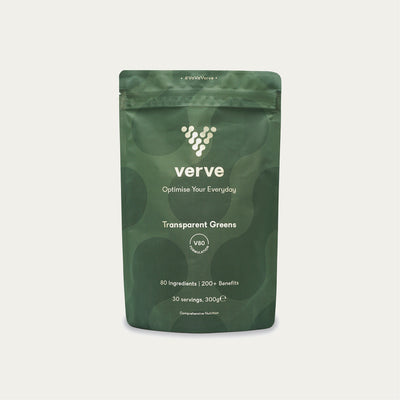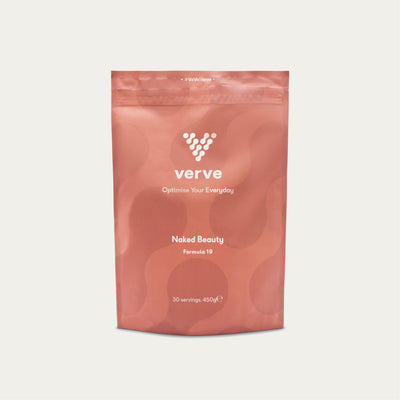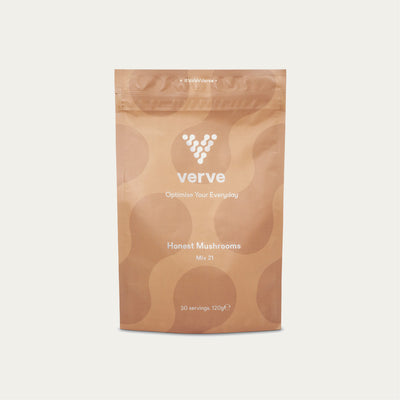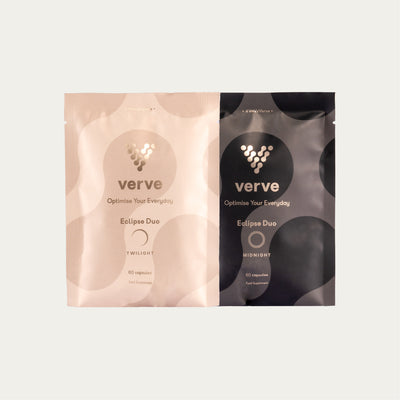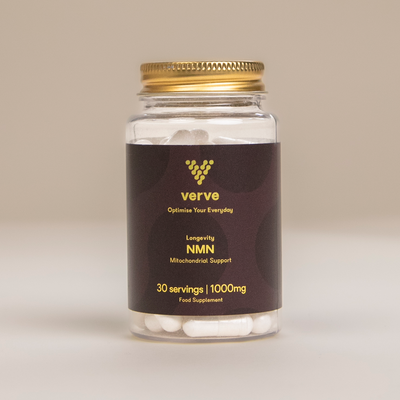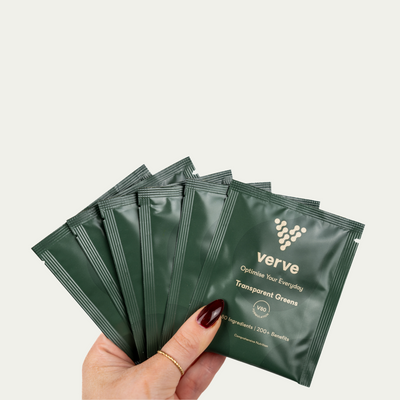1. Vitamin C
Vitamin C is a powerhouse for combating signs of skin ageing due to its pivotal role in synthesising collagen, which diminishes with time, leading to wrinkles and sagging.
It's also an antioxidant that fights against free radicals caused by UV radiation and pollution, which are primary culprits of premature ageing.
Topical applications can brighten the skin by fading dark spots and improving the overall skin tone. When ingested, whether through fruits like oranges and kiwis or as a dietary supplement, it boosts the skin’s natural regeneration process, maintaining a youthful radiance.
2. Collagen
Collagen peptides in supplement form have become a go-to for those looking to restore elasticity and firmness to their skin.
By providing the body with bioavailable collagen, these supplements help to counteract the natural decline of collagen production. Clinical studies have suggested that taking collagen can improve skin hydration and reduce wrinkle depth, making it a valuable ally in the anti-ageing skincare arsenal.
3. Omega-3 Fatty Acids
These essential fats are not produced by the body and must be obtained from diet or supplements.
Omega-3s are found in high concentrations in the skin and are integral to the lipid barrier, which locks in moisture and protects against irritants. Consuming omega-3s through fish or flaxseeds, or taking fish oil supplements, can lead to smoother, more hydrated skin, and can also reduce the severity of skin conditions like acne and dermatitis.
4. Hyaluronic Acid
Hyaluronic acid's claim to fame is its unrivalled hydrating potential, which results in smoother, plumper skin.
Its ability to bind to water and retain it within the skin’s structure is particularly beneficial as the skin's natural hyaluronic acid levels decrease with age.
While it is commonly used topically, oral supplements can support the skin’s hydration from the inside out, leading to long-lasting moisturisation and possibly reducing the appearance of fine lines.
5. Vitamin A
As an essential vitamin for skin repair, Vitamin A helps maintain and repair skin tissue.
It’s found in various forms, with retinoids being especially effective in topical skincare for reducing signs of ageing and treating acne. Ingesting Vitamin A through foods like liver, fish, and dairy, or through high-quality supplements, can support the skin's immune system, promote natural moisturising, and help in maintaining a healthy skin barrier and complexion.
6. Vitamin E
Vitamin E is a lipid-soluble antioxidant that works to protect cells from oxidative damage.
It combats the effects of free radicals from toxins and UV exposure that can lead to signs of skin ageing.
While naturally occurring in many oils, nuts, and seeds, supplements can provide higher doses for those looking to target skin health specifically. When applied topically in conjunction with Vitamin C, it can provide added protection against sun damage and promote skin healing.
7. B Vitamins
B vitamins are a class of water-soluble vitamins that have a wide range of skin benefits.
Niacinamide (Vitamin B3) helps combat inflammation, redness, and hyperpigmentation. Panthenol (Vitamin B5) acts as a humectant, attracting and locking in moisture.
Biotin (Vitamin B7) is essential for maintaining the skin’s fatty acids, which nourishes and hydrates the skin. Regular intake of B vitamins, either through diverse foods such as eggs, milk, and grains or via supplements, ensures the skin is nourished from the inside out, maintaining a balanced complexion.
- Niacinamide (Vitamin B3): Strengthens the skin's barrier function, reduces inflammation, and improves the appearance of enlarged pores, uneven skin tone, and fine lines.
- Pantothenic Acid (Vitamin B5): Moisturises the skin, has healing properties, and provides relief from acne and skin irritations.
- Pyridoxine (Vitamin B6): Essential for new cell formation and is believed to help in treating skin conditions like eczema.
- Biotin (Vitamin B7): Supports healthy skin by aiding in the process of fat metabolism, which is crucial for maintaining the skin's health.
- Folic Acid (Vitamin B9): Helps with cell growth and skin regeneration, and may have a positive effect on the appearance and health of the skin.
- Cobalamin (Vitamin B12): Assists in cell reproduction and constant renewal of the skin, potentially beneficial for dry, irritated, and aged skin.
8. Zinc
Zinc is a trace mineral that aids in healing the skin and preventing the buildup of DHT (dihydrotestosterone), which can cause acne
It's involved in maintaining the production of new cells and the structure of proteins like collagen. Zinc's anti-inflammatory properties make it beneficial for inflammatory skin conditions, and it acts as a 5-alpha reductase inhibitor, reducing the oil production that can lead to acne.
Found in meat, legumes, and nuts, zinc supplements can also be a direct method to boost skin health, particularly for those with low levels in their diet.
9. Turmeric
Known for its curcumin content, turmeric boasts strong anti-inflammatory and antioxidant effects, which make it beneficial for skin conditions such as acne, eczema, and psoriasis.
It can assist in reducing redness and irritation, and its antioxidants may help fend off signs of ageing caused by environmental stressors.
Turmeric can be consumed in culinary dishes or as a supplement, with some studies suggesting that its bioavailability is enhanced when paired with piperine, a compound found in black pepper.
10. Vitamin D
While a majority of Vitamin D is produced in the skin upon exposure to sunlight, dietary sources or supplementation can ensure adequate levels, especially in regions with limited sun. Vitamin D contributes to skin cell metabolism and growth, making it important for skin repair and maintenance.
It has been associated with managing conditions like psoriasis and may reduce the risk of skin infections.
11. Aloe Vera
Aloe Vera is widely used for its soothing, moisturising, and healing effects on the skin, particularly in the form of topical gels and creams.
When ingested, however, aloe vera can still offer skin benefits due to its anti-inflammatory and anti-bacterial properties. It provides a gentle remedy for improving hydration and calming irritated skin, making it a popular supplement for those looking to enhance skin health from within.
12. Selenium
Selenium is a powerful mineral and antioxidant that plays a crucial role in maintaining skin health.
It works synergistically with other antioxidants like Vitamin E to protect skin cells from damage caused by environmental stressors and UV rays. Selenium has properties that may protect against certain skin cancers and helps to preserve skin's elasticity and firmness. By neutralising free radicals, selenium can prevent signs of premature ageing, including wrinkles and fine lines. It is often included in supplements aimed at boosting skin health and can be found in foods like Brazil nuts, seafood, and grains.
Best Vitamins and Supplements For Skin: Frequently Asked Questions
What is the best supplement for skin?
The best supplement for skin would be one that offers a comprehensive blend of nutrients beneficial for skin health. Verve V80 contains all essential vitamins, selenium, zinc, aloe vera and 80 ingredients in total (and 200+ health benefits). These ingredients work together to support skin repair, hydration, and protection against environmental damage. It's important to look for high-quality supplements with bioavailable ingredients to ensure your skin reaps the full benefits.
What vitamins help your skin the most?
Vitamins that help your skin the most include Vitamin C, known for its antioxidant properties and role in collagen synthesis; Vitamin E, which protects the skin from oxidative stress; and Vitamin A, crucial for skin repair and maintenance. B vitamins, such as niacinamide, contribute to a healthy skin barrier, and Vitamin D plays a role in skin cell growth. These vitamins, when taken in the right amounts, can support overall skin health and appearance, giving it a more youthful and radiant look.
What vitamins help clear skin?
To help clear skin, vitamins A and D are particularly beneficial, as they support skin cell turnover and have anti-inflammatory properties, respectively. Niacinamide, a form of Vitamin B3, is effective in reducing skin inflammation and managing acne due to its soothing properties. Zinc and selenium also contribute to clear skin by regulating oil production and protecting against cellular damage.
What is the best vitamin for aging skin?
The best vitamin for aging skin is arguably Vitamin C, thanks to its pivotal role in collagen production and its antioxidant abilities that fight free radicals.
Also, Vitamin A, or retinol, is renowned for its anti-aging effects, encouraging cell renewal and reducing the appearance of fine lines and wrinkles. A holistic approach, including a nutrient-rich diet and skincare regimen, enhances these benefits.
Can vitamin D reverse wrinkles?
Vitamin D has several roles in skin health, including facilitating healthy skin cell growth and repair, which can contribute to fewer wrinkles, but it’s ability to do so consistently has not been established.
Adequate Vitamin D levels can contribute to a healthier skin appearance, but reversing wrinkles typically requires a comprehensive approach that includes other vitamins, such as Vitamins A and C, topical treatments, and possibly dermatological procedures.
